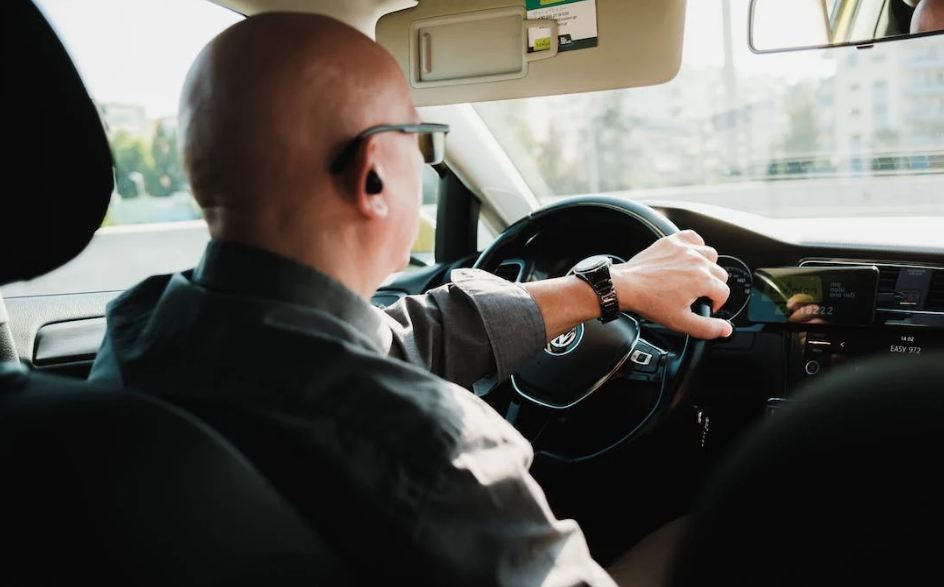Today, millions of people embrace the convenience of ride-hailing services to navigate the bustling streets of your city. The simplicity of tapping your smartphone to summon a ride has undoubtedly transformed the way you move from point A to B. The ease of cashless transactions further enhances the convenience of this modern transportation method.
Yet, beyond the apparent ease and efficiency, have you ever paused to consider the potential toll on your well-being during these journeys? The health risks often go unnoticed given the current fast-paced lifestyle. Before exploring health risks, let’s grasp the popularity of these services.
In recent years, the popularity of ride-hailing services has soared, with individuals using them for various reasons. These services act as catalysts for economic growth, simultaneously boosting the revenue of service providers. According to Statista, the ride-hailing industry in the U.S. is projected to reach $54.4 billion by 2027. The figures underline the immense scale and influence of these transportation platforms.
However, you need to peer beyond the allure of convenience and economic impact. This blog aims to explore the potential health risks that may lurk beneath the surface of this booming industry.
Posture Problems
Long-term use of cab services may contribute to posture problems for riders. These concerns are real, especially considering the increasing number of adopters of these services. In the U.S., nearly 24% of ride-hailing users in metropolitan areas utilize these services on a weekly or daily basis. Research conducted by the University of California reveals a significant spike in the number of users of these services.
While these services offer convenient ways to reach a destination, they could still pose potential health risks. Sitting for prolonged periods during the trips can adversely impact your posture. Passengers may not immediately notice the subtle changes, but over time, poor posture can lead to chronic issues. The lack of ergonomic support in some vehicles exacerbates the risk, emphasizing the need for awareness.
Addressing posture problems requires proactive measures, such as adjusting seat positions and incorporating short breaks during rides. Awareness and simple adjustments can make a significant difference in mitigating the health risks associated with poor posture during trips.
Possibility of Accidents
The possibility of accidents looms as a significant health risk associated with frequent use of cab services. With the surge in the adoption of these services, the likelihood of accidents increases.
Driver fatigue emerges as a potential cause for accidents in ride-hailing cabs. The findings of the National Safety Council (NSC) showcase the severity of the issue. According to the NSC, around 100,000 crashes, 71,000 injuries, and 1,550 fatalities are attributed to drowsy driving annually. This presents a sobering reality for both drivers and passengers alike.
Users, often unaware of their driver’s fatigue, are inadvertently exposed to the risks associated with drowsy driving. The alarming numbers highlight the need for increased awareness and measures to address driver fatigue. Recognizing the potential dangers posed by fatigued drivers is crucial for promoting passenger safety and well-being.
The incidents involving ride-hailing services are increasing, causing harm to both drivers and passengers. These incidents are widespread across the United States. For instance, St. Louis is witnessing a trend in which malicious individuals target either drivers or passengers. In one incident, a person with a weapon stole a car from an Uber driver at gunpoint overnight in north St. Louis.
Although the incident involved the driver, a significant number of incidents are negatively affecting passengers in St. Louis. According to TorHoerman Law, these incidents impose an immense emotional and financial toll on the passengers. In the aftermath of such events, individuals sustain injuries, compelling them to spend unspecified amounts on treatment.
In such cases, individuals can seek the assistance of St. Louis personal injury lawyers who can help them establish a strong legal stance. These lawyers can also aid them in overcoming financial difficulties by ensuring rightful compensation through legal means.
Psychological Toll Due to Traffic
Enduring a psychological toll due to traffic is an often overlooked consequence of ride-hailing services. The constant exposure to traffic jams during these rides can elevate stress levels. Prolonged exposure to traffic congestion can lead to heightened anxiety and irritability among passengers.
The psychological impact of traffic is particularly significant for frequent users of these services. The frustration stemming from delays and unpredictable travel times can contribute to increased stress. Recognizing the toll on mental well-being is essential for those relying heavily on these services.
The mental strain induced by traffic during journeys is a genuine concern. Regular users may find themselves grappling with heightened stress, negatively impacting their overall psychological well-being. As these services continue to shape urban transportation, addressing the psychological toll of traffic becomes paramount for maintaining passenger mental health.
Hygiene Issues
Hygiene is one of the factors that is often overlooked in ride-hailing services. Shared vehicles, frequented by diverse passengers, become potential breeding grounds for germs. Passengers, inadvertently exposed to these hazards, may encounter risks associated with compromised hygiene during their journeys.
The often-overlooked hygiene hazards in these services encompass frequently touched surfaces like door handles, seatbelts, and shared air ventilation systems. With numerous people entering and exiting the vehicle, the potential for the spread of germs is heightened. Passengers may unwittingly expose themselves to the risk of illness due to the inadequate sanitation of these shared spaces.
Maintaining personal hygiene vigilance becomes crucial for passengers. The onus is on both users and service providers to prioritize cleanliness. Regular sanitation practices, both by drivers and passengers, can significantly mitigate the hygiene hazards inherent in shared spaces.
Summing Up
It’s evident that convenience comes at a price. From posture problems to the psychological toll, these risks warrant your attention. As you navigate the roads with ride-hailing services, you need to be mindful of the potential impacts on your well-being. Staying informed and taking proactive measures can contribute to a safer and healthier riding experience.



